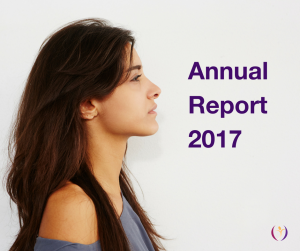
By Ann Marie Foley - 21 June, 2018

Ruhama has called on the government to urgently implement laws aimed at curbing Ireland’s violent sex trade.
Last year Ruhama, Ireland’s national service for those affected by prostitution and sex trafficking, supported dozens of women who formally reported crimes committed against them to An Garda Síochána. Others also informally shared information about assaults and other offences against them.
“We are deeply disappointed that no convictions against sex buyers have been secured under this legislation to date. The law cannot therefore be said to have been fully implemented,” said Sarah Benson, CEO, Ruhama.
She explained that the new *sexual offences legislation that came into force in March 2017 was designed to erode Ireland’s sex trade by criminalising the purchase of sex, thereby reducing demand, while also de-criminalising those in prostitution as vulnerable persons who should not be treated as criminals.
However, the lack of convictions allows the trade to continue with impunity and the organised criminal gangs profiting from the sexual exploitation of women to thrive.
Sarah Benson added: “While Ruhama welcomes the increased efforts being made by some Garda units to support those in prostitution to safely report crimes against them, this is not enough. We need swift and decisive action from An Garda Síochána to effectively target both sex buyers and prostitution organisers using this important legislation that they now have at their disposal.”
Ruhama would also like the government to raise public awareness that it is now a crime to purchase sex in Ireland.

Sarah Benson, CEO, Ruhama
Ruhama’s Annual Report reveals that the charity supported 304 women, transgender people and men during the last year. But it stated that much more needs to be done to address the serious harm of Ireland’s commercial sex trade.
In 2017 Ruhama provided supports to 39 different nationalities from across the globe, including 109 victims of sex trafficking from four continents. The vast majority of those seeking support were women, reflecting the highly gendered nature of the sex trade. Ruhama facilitated more than 3,000 face-to-face meetings last year and its frontline team took more than 23,000 telephone calls.
“The women we support face many challenging life circumstances and lack of opportunities that are so often causal factors for women’s vulnerability to entering prostitution or being trafficked in the first place. These vulnerabilities are compounded by levels of violence and exploitation experienced within the Irish sex trade that many would find hard to even imagine,” said Sarah Benson.
She explained that those women tell of many incidences of physical violence, rape and sexual assault, which they have experienced at the hands of sex buyers, pimps, traffickers and opportunistic criminals alike.
“The long-term physical and psychological consequences of such attacks cannot be underestimated. Yet every day we are struck by women’s capacity to overcome trauma, to assert their human rights, and to fight for justice,” she said.
Key statistics highlighting the demand for Ruhama’s services during 2017:
– 62 received street outreach support, with 943 staff and volunteer hours of street outreach over 121 nights;
– 244 received casework support, of whom 135 received general casework support and 109 received casework support as victims of trafficking;
– 91 accessed Ruhama’s services for the first time, of whom 65 received general casework support and 26 received casework support as victims of trafficking;
– 2 service users accessed both street outreach and casework support – this included face-to-face contacts provided via casework, street outreach and education and development programmes.
There were 3,022 face-to-face contacts, 10,615 telephone contacts, 13,406 SMS contacts. Fifty benefitted from dedicated housing and welfare service and eighty-one received education and development support during 2017.
*It is illegal to pay for sex in Ireland under the Criminal Law (Sexual Offences) Act, 2017.